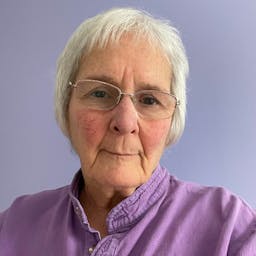Ongoing Efforts to #Make Change Not Trash
May 28, 2019
Story
For many years I lived rurally where there is no garbage pickup. I grew my own food - from seed to garden to wheelbarrow to table, or dried, canned or frozen. I was able to compost. Three piles, different ages, Plenty of grass, leaves and bark to throw on top, time to turn it, dig it, move it back to gardens. Old clothing, buttons removed, was composted separately, mixed with weeds that we didn’t want back in the gardens. There was also an outhouse, an every year its contents too would be removed and composted, not for the vegetable gardens, but enjoyed by some of the trees. For garbage, you had to buy a big plastic bag for $5.50 and try not to fill it too fast. When full it would go along with recyclables of tin, glass, plastic and paper to a place in town nine miles away. The bag was useful for odds and ends of construction projects and things that could not be composted or recycled, and not using it at all was the goal.
Then I moved back to a big city. It is much harder in the city. It is especially hard not to be able to compost, but other Canadian cities are beginning to offer separate trucks, and containers for composting. Some cities offer drums that spin, that compost food well enough to add back directly to gardens. My city plans to add these next year. Some people are grumbling about the smell, or the extra work. Lots of us can't wait. I try to buy my food at the markets, and in stores that provide bulk buying. I have to search for organic food instead of walk out to my garden. I will not buy bottled water and I boycott Nestles because of the damage they are doing to the water tables, globally. I avoid and boycott Genetically Modified Organisms (GMO) foods and products, researching the current lists online to know what the most common GMO foods are, and signing petitions for the right to label foods. I do this for my own health and to know that in what I buy, no “round-up ready” or other herbicides and pesticides are in my food or have been put on the earth to grow it. I do this to save the little farmland we have left. I carry a handkerchief. It saves on paper. It washes with a small bit of water. In the country I was so careful with water. I try not to let any go down the drain unnecessarily. I use glass whenever I can instead of paper or plastic, soaps and shampoos that are good for my skin and made in harmony with the earth. Most of my favourite clothes are pretty old now and still good.
One big advantage to being in the city is being able to take part in actions for the environment, and to be able to be active online. And so, no gardens at the moment, but supporting no waste by petitions, by writing and speaking, by being able to be physically present for demonstrations to clean the plastic and chemicals out of our rivers, lakes and oceans, stop frakking, using harmful chemicals, growing GMO foods. I can stand with others for solar, wind and geothermal development, and accountable businesses. I can call on the mining companies to clean up messes and compensate people. I can stand with Indigenous people here who have been forced to live with bottled water for 20 years. because of pollution by mining. I can hold accountable all governments supporting mining and other businesses who globally are directly or indirectly paying thugs with guns to control people as their communities are ruined by the rape or robbery of their land and the deaths of all resisting. I can call on all of the governments of the world to answer to the global theft of three quarters of the wealth of the world into off shore accounts. This could go a long way toward solving waste problems. In the meantime I'll continue to carry my cloth bags, keep myself from falling into the lull of forgetting, in the midst of hectic city life, and be part of the push for our coming composting system.
FOLLOWING (1




